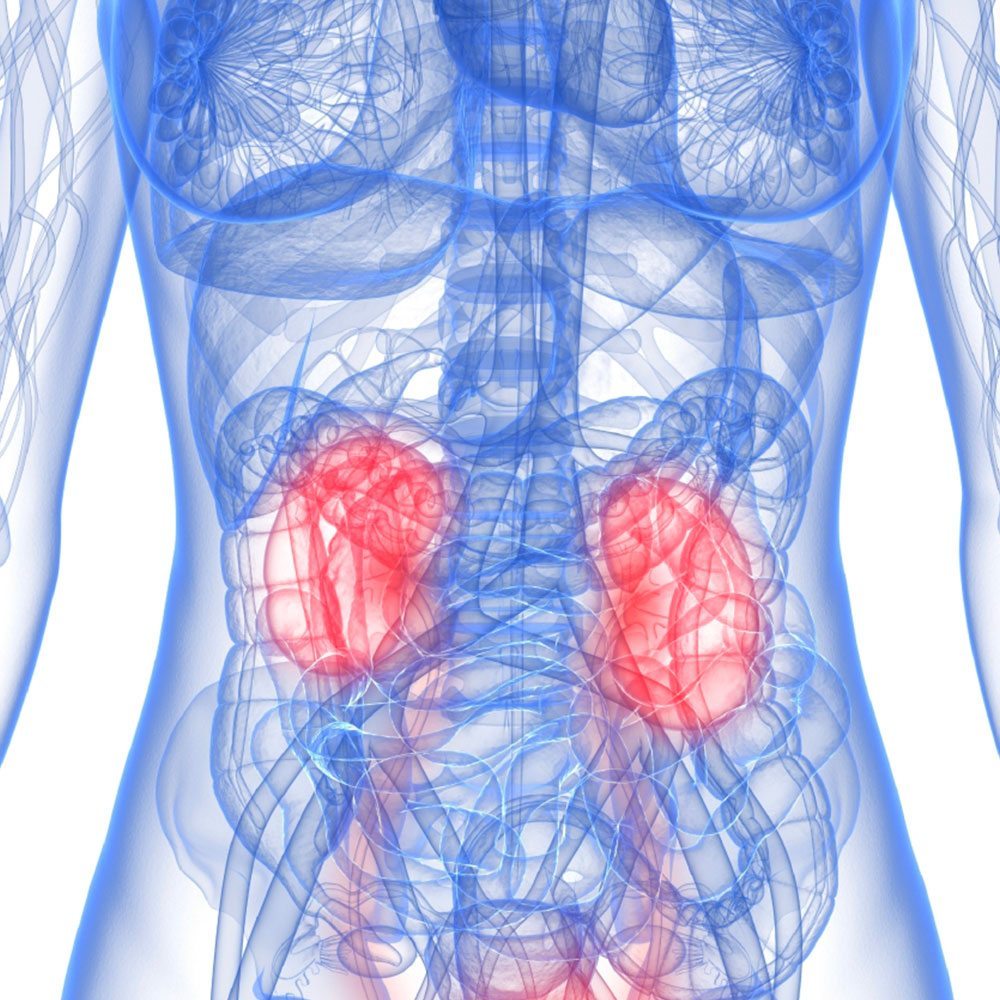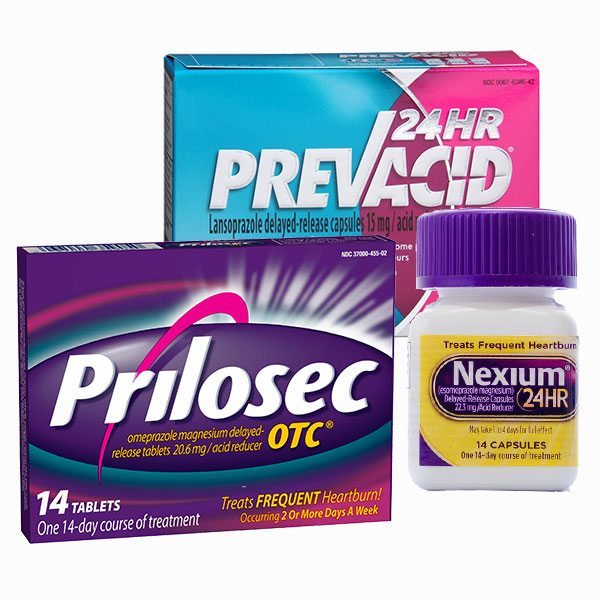Chronic Kidney Disease and Kidney Injury from Nexium, Prilosec and Prevacid
Medical studies have shown a link between Nexium, Prilosec, and Prevacid and serious kidney injuries.
| Kidney Injuries from Nexium, Prilosec, and Prevacid Include: |
|---|
| Chronic kidney disease (CKD) |
| Acute interstitial nephritis (AIN) |
| Acute kidney injury |
| Kidney failure |
| Dialysis treatment |
| Kidney transplant surgery |
We are investigating lawsuits involving Nexium, Prilosec, and Prevacid and chronic kidney disease and other serious kidney injuries. If you or a loved one took one of these medications and suffered a serious kidney injury or developed kidney disease, contact us for a free lawsuit evaluation. You may be able to receive financial compensation for your injuries, medical expenses and pain and suffering.
Nexium, Prilosec, and Prevacid Linked to Acute Kidney Injury and Chronic Kidney Disease
A study published in the Journal of the American Medical Association showed that people who use Nexium, Prilosec and Prevacid have a 20 to 50 percent higher risk of developing chronic kidney disease than people who do not use PPIs.
People who use Nexium, Prilosec and Prevacid have a 20 to 50 percent higher risk of developing chronic kidney disease.
These popular drugs were already linked to short-term kidney problems, but newer studies on Nexium, Prilosec and Prevacid show a link between PPIs and chronic, long-term kidney disease.
More frequent use of PPIs can increase the risk of serious kidney injury. The study found that twice-daily use resulted in a 46 percent increased risk of chronic kidney disease, whereas once daily use resulted in a 15 percent increased risk.
Kidney Disease and Kidney Injuries from Nexium, Prilosec and Prevacid
A number of medical studies published over the last decade have shown a link between proton pump inhibitors and serious kidney injury.
| Kidney Injuries from Nexium, Prilosec and Prevacid include: |
|---|
| Acute kidney injury |
| Acute interstitial nephritis |
| Chronic kidney disease |
| Kidney failure |
| Dialysis treatment |
| Kidney transplant surgery |
News of these serious kidney injuries has the medical community alarmed due to the number of people who use these drugs. Nexium, Prilosec, and Prevacid are among the most commonly used drugs, with over 15 million people using these drugs each year. Many people take them daily, which can greatly increase the risk of chronic kidney disease and other kidney injuries.
Nexium, Prilosec and Prevacid Lawsuits are being investigated for individuals who were injured after taking these drugs. If you developed a serious kidney injury after taking name brand Nexium, Prilosec or Prevacid you may be entitled to financial compensation. Contact our Nexium, Prilosec and Prevacid lawyers today for a free lawsuit evaluation.
Serious Side Effects from Nexium, Prilosec and Prevacid
Chronic Kidney Disease (CKD)
Chronic kidney disease (CKD) is characterized by the gradual loss of kidney function, which hinders its ability to perform normal functions that keep the body healthy. When the condition worsens, wastes can build up in the blood and lead to complications including high blood pressure, anemia, weak bones, poor nutritional health, and nerve damage. Furthermore, poor kidney health is associated with heart and blood vessel disease.

In 2016, the Journal of the American Medical Association (JAMA) published a study which found that long-term usage of Nexium, Prilosec and Prevacid could increase the risk of the development of chronic kidney disease (CKD). Furthermore, the study showed that the risk of CKD in PPI users over a ten-year period was 20 to 50 percent higher than those who did not take the medications.
Acute Interstitial Nephritis (AIN)
Acute interstitial nephritis is a condition characterized by the swelling between kidney tubules, which reabsorb water and other substances from your kidney filtrate system. This condition is often caused by a reaction to proton pump inhibitors and can lead to a number of unwanted symptoms such as: fever, fatigue, exhaustion, nausea, vomiting, rash, elevated blood pressure, and more.
Acute Kidney Failure
Acute kidney failure, also known as acute renal failure or acute kidney injury, is a medical condition where the kidneys fail to correctly filter waste products from the blood. This can lead to the accumulation of dangerous wastes in the blood and lead to a number of symptoms including:
- Decreased urine production
- Excessive fluid retention
- Swelling in legs, ankles or feet
- Shortness of breath and fatigue
- Confusion
- Nausea
- Seizures or coma
- Chest pain or pressure

In some cases, acute kidney failure can even lead to death. A 2015 study found that older patients who took PPIs were twice as likely to be hospitalized with kidney failure than those who didn’t take the medication.
Other Side Effects from Nexium, Prilosec and Prevacid
Clostridium Difficile
Clostridium difficile (C. difficile) is a bacterium that can cause illnesses and unwanted symptoms ranging from abdominal cramping and pain to diarrhea and fever. If left untreated, C. difficle can eventually lead to kidney failure. These bacteria are found throughout the environment and even a small number of healthy people naturally carry the bacteria in their body without any ill effects. However, recent studies have suggested that the use of PPI medications like Prevacid, Nexium, and Prilosec could lead to a C. difficile infection. A 2013 study by JAMA found that PPI use is associated with the development of C. difficile-related diarrhea, and that less use of PPI should lead to less of the disease.
Bone Fractures
A fracture is another term for a broken bone, which occurs when a force is exerted on the bone that is stronger than the bone itself. Although fractures are more common in childhood, broken bones actually become more complicated because the bones become more brittle as you age— fractures are more likely to occur from falls that would not occur when you are young.
According to observational studies performed by the U.S. Food and Drug Administration (FDA), use of proton pump inhibitors increased risk of hip, wrist, and spine fractures among individuals aged 50 years and older. The greatest increased risk involved people who were taking PPIs for at least 1 year or those who had received high doses at regular internals. Furthermore, there was a clear association where the population had a previous risk for potential fracture.
Dementia
Dementia is a brain condition characterized by memory loss, confusion, inability to communicate, and can be severe enough to interfere with one’s ability to perform everyday activities. The most common type of dementia is called Alzheimer’s, which accounts for 60 to 80 percent of dementia cases. Studies have shown that older individuals who are prescribed a proton pump inhibitor may increase their risk of developing dementia over time.

A study published in JAMA Neurology in February 2016 confirmed this association after analyzing more than 73,000 subjects aged 75 years or older who did not have dementia at the beginning of the experiment. Over a seven-year time frame (2004-2011), 29,510 subjects were diagnosed with dementia after receiving regular PPI medication.
Updates to Nexium, Prilosec, and Prevacid Warning Labels
In a 2011 petition to the FDA regarding Nexium, Prilosec and Prevacid, Public Citizen explained that these proton pump inhibitor drugs were often being used for extended periods of time. The warning labels on the drugs did not provide enough information to deter people from using the drugs daily for weeks, months, and even years.
Over the last several years the FDA has recognized some of the serious risks involved with taking PPIs and has mandated that drug makers include additional warning information on the labels of Nexium, Prilosec and Prevacid regarding the risk of C. difficle-associated diarrhea and risk of certain drug interactions.
They also requested that labels have information warning about the risks of vitamin B-12 deficiency and acute interstitial nephritis. As of this writing, the FDA has yet to mandate a warning to include risks for chronic kidney disease or kidney failure.
About Nexium, Prilosec and Prevacid Lawsuits
NastLaw is investigating claims of people that took brand name Nexium, Prilosec or Prevacid products and developed Chronic Kidney Disease or other serious kidney injuries. If you took prescription Nexium, Prilosec or Prevacid and suffered an injury, you may be eligible for a lawsuit.
After the studies were published about the potential for serious kidney injuries from PPIs, our team of Prilosec lawyers began investigating whether there were legal consequences for the manufacturers.
We believe that the manufacturers of Prilosec should be held accountable for causing serious kidney injuries to users of their product.
| Nexium, Prilosec and Prevacid lawsuits allege that: |
|---|
| The manufacturers spend billions of dollars in advertising to increase the number of people using their products AND increase the frequency that PPIs are used |
| Drugs like Nexium, Prilosec and Prevacid are marketed as safe to use for extended periods of time, when in reality extended usage has been linked to serious kidney injuries |
| The manufacturers of Nexium, Prilosec and Prevacid failed to provide adequate warning to patients and doctors about the potential long term health risks associated with their products, choosing profits over the safety of their customers |
Nexium, Prilosec, Prevacid Lawyers
NastLaw attorney Daniel Gallucci is helping to lead the lawsuits against Nexium, Prilosec and Prevacid. Mr. Gallucci has spoken about the lawsuits at several national conferences, raising awareness about the serious nature of the injuries caused by these drugs.
Our dangerous drug attorneys have over 100 years of combined experience litigating dangerous drug lawsuits like the ones against Nexium, Prilosec and Prevacid. NastLaw attorneys fight for victims, so you can be assured that you will receive vigorous and aggressive representation.
We represent clients across the country, and our lawyers are recognized as some of the top in the country for their dedication to their clients and track record of results.



Nexium, Prilosec, Prevacid Lawsuit Consultation
If you or a loved one suffered a serious kidney injury or developed kidney disease after taking Nexium, Prilosec, or Prevacid, you may be eligible to receive financial compensation for your injuries.
If you have any questions at all, please contact our proton pump inhibitor lawyers for more information. There is no cost or obligation if you contact us – we want to help you get the best legal representation available.
Free Lawsuit Evaluation
Sources
- http://archinte.jamanetwork.com/article.aspx?articleid=2481157
- http://cmajopen.ca/content/3/2/E166.short
- http://archinte.jamanetwork.com/article.aspx?articleid=1697791
- http://archneur.jamanetwork.com/article.aspx?articleid=2487379
- http://www.medicinenet.com/proton-pump_inhibitors/page2.htm
- http://www.webmd.com/drugs/2/drug-20536/nexium-oral/details#side-effects
- https://www.kidney.org/kidneydisease/aboutckd#ckd
- http://archinte.jamanetwork.com/article.aspx?articleid=2481157
- https://www.nlm.nih.gov/medlineplus/ency/article/000464.htm
- http://www.mayoclinic.org/diseases-conditions/kidney-failure/basics/definition/con-20024029
- http://www.mayoclinic.org/diseases-conditions/c-difficile/basics/causes/con-20029664
- http://www.alz.org/what-is-dementia.asp
- http://www.fda.gov/downloads/Drugs/NewsEvents/UCM399631.pdf

